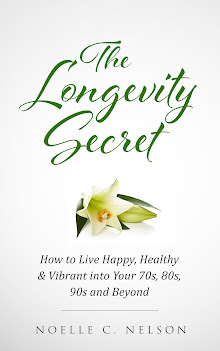 | |
| Baer--my Energizer Bunny |
My German Shepherd-mix rescue pup, Baer, is a great dog.
He’s all legs and energy, so sometimes I think of him as Fred Astaire, and
sometimes more as the Energizer Bunny on steroids. Especially near mealtimes.
I feed my dogs twice a day, and I’m convinced they have
clocks in their stomachs, because right around 5:30 p.m. (a half hour before
their 6:00 p.m. meal), they get antsy. In particular, Baer. But around 5:30 p.m.,
I may very well still be working—as I am today, and Baer shoving my arm up off
the computer keyboard to get my attention is just getting me annoyed. Even more
so when he does it repeatedly.
That’s when I have to HALT – as in remember that my sweet
pup isn’t deliberately trying to annoy me, he's just hungry. And that I don't
need to let my annoyance grow into irritation, or worse, anger, I can just
halt. Take a pause. Breathe. Recoup.
HALT is an acronym used often in the treatment of various
addictions, "Hungry, angry, lonely, tired" to help people remember not to rush
into behaviors or words they may regret when they are hungry, angry, lonely or
tired. Or to recognize that those we are interacting with may not be
deliberately rude, difficult or otherwise challenging, but simply be hungry,
angry, lonely or tired.
Think about it. When you’re hungry, you're less patient.
When you’re tired, you’re cranky. When you're lonely, you may be tempted to
drink, use various substances or otherwise soothe the pain in what may not be
the most beneficial ways. And when you're angry? We all know too well how
easily it is to over react or act out when we’re under the influence of angry
feelings.
Halt. Just stop. Get quiet. Be still. Count to 10, or
whatever helps you hang with yourself for a moment. Breathe. Slowly. Recognize
what’s really going on with you: are you hungry? Angry? Lonely? Tired?
Acknowledge the underlying feeling. Deal with that as best you can, and wait
until you feel more like your normal self before you interact with others.
When someone is exhibiting less than what you consider to be
appropriate or desirable behavior, first ask yourself: might they be hungry,
angry, lonely or tired? Try not to judge, but rather to understand where they
might be coming from. Not so you can be their "therapist" and certainly not to
tell them what’s "wrong" with them, or what they “should” do. That’s not the
point. But so that you can have some compassion for the person, and thus deal
with them in a more humane manner.
Like with my pup. When I remember to halt, take a breath,
and then say, "It’s OK, Baer, I’ll feed you shortly," accompanied by some
petting, he's easily soothed into waiting those few minutes. Far better for
him—and me!—than getting irritated with my sweet dog.






